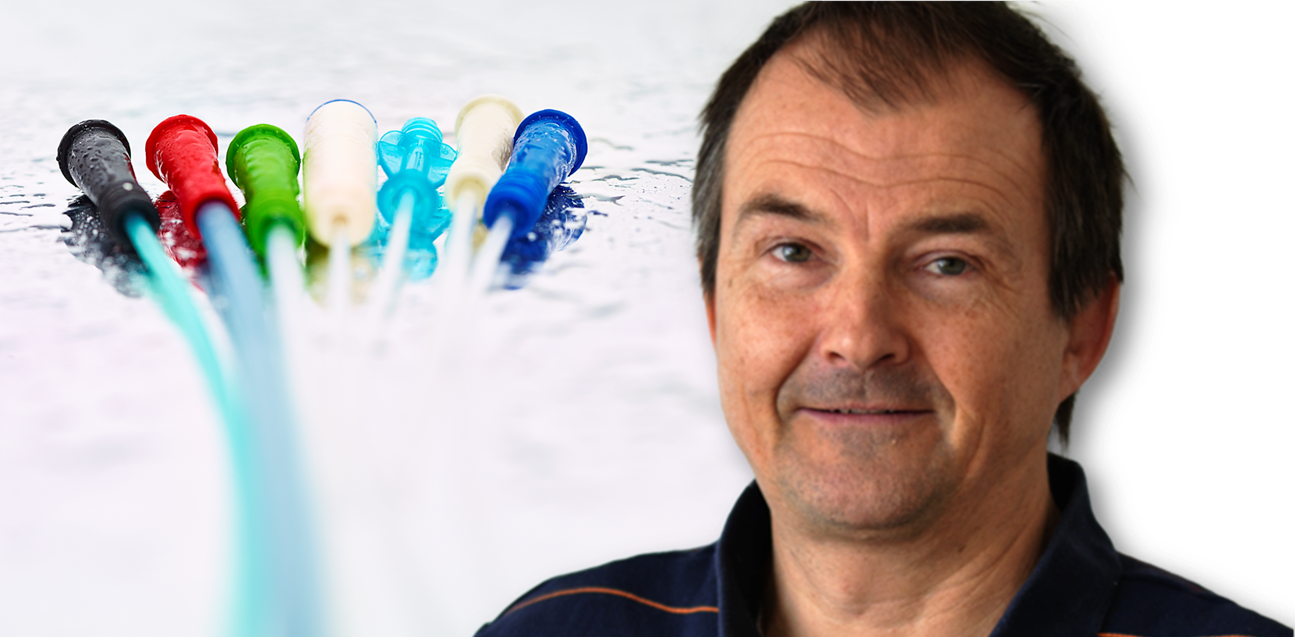This time we will do some trend spotting, and what could be better than discussing the future with someone who made history, revolutionizing catheterization with the hydrophilic catheter – Jan Utas.

How it all began
In the early 80’s, indwelling catheters were the most common solution for people unable to empty their bladders the natural way. For the user, this was a painful and restraining process that often led to complications such as urinary tract infections. There was certainly a need for something better.
From indwelling to intermittent catheters
Clean Intermittent Catheterization (CIC) already existed in a small scale but it was the hydrophilic, very slippery coating, that really made CIC take off.
Instead of getting a catheter that resides in the bladder and is connected to a bag, the users catheterize themselves with disposable catheters as many times a day as they normally would have gone to the toilet. No bag attached. (See blog post “A quick guide to different types of catheters” for more information about the different types of catheters).
Jan Utas and his colleagues at Astra Tech reconstructed the coating machine (at first designed for indwelling catheters) to fit intermittent catheters and in 1983 the first hydrophilic catheter left the production site.
It was a hectic time. We changed a lot during the building of the machine, but it took only a year to go from the first coating trials on intermittent catheters in the laboratory to poduct launch.
Where to go now?
Jan Utas is still with the company, now called Wellspect HealthCare. And his curiosity and inventive mind hasn’t stopped generating ideas. But is there space for invention in a business where the product is a plastic tube? Is it possible to vary
Today there are a lot of good catheters on the market, but I truly believe that we still can improve the catheters and thereby the quality of life for the people who need them. Obviously I can’t tell you all about our plans… But it is about simplifying the process and recreating a bladder management as similar to the natural one as possible.
Service provider
When the differences between the brands become smaller, the service level and peripheral equipment become more important.
The best provider will be the one who delivers a complete solution with an outstanding level of customer service. What if you had a subscription, like for Netflix or a telecom service provider? If you could sign up for a year or bladder management and the company provides you with catheters and excellent services, like handling aids and home visits and phone consultation if needed.
What about the users' perspective?
It is not only the actual catheter and the service level that matters to catheter users. According to the users in Wellspect’s online patient panel TellUs, the most important issue is convenience; features like easy handling and discrete packaging (56%).
Coming in second, not far behind, is medical complications such as urinary tract infections, trauma, pain and discomfort (44%). Click here to read more about this study.
When investigating the reasons for switching catheter brands, 7 out of 10 users change because of the convenience features, so packaging and handling are very important aspects.
I would like to create a product that is really good for people with poor motor skills, especially hand function. They represent a larger share of the people with spinal cord injury today, not least because of an improved medical care where we can save even more badly injured patients, Jan Utas says.
Geographical spread
The future will probably also hold a more widely spread CIC therapy. Today the Western economies with good medical infrastructure dominate the global market for urinary catheters, but emerging economies in Asia-Pacific, Latin America and Eastern Europe are increasing the market share. Major health reforms, infrastructure development, improving reimbursements for procedures requiring catheterization, are factors that create good preconditions in these countries.
Renewable materials
Another aspect of the global perspective is the environment.
We have already replaced PVC with a material called POBE resulting in a lower environmental strain – which is a big step – but I dream about totally renewable materials. Instead of petroleum based materials, renewable resources like grains or cellulose are possible catheter materials. Today there is a limited amount of renewable components available but I am looking forward to see what the future holds!




